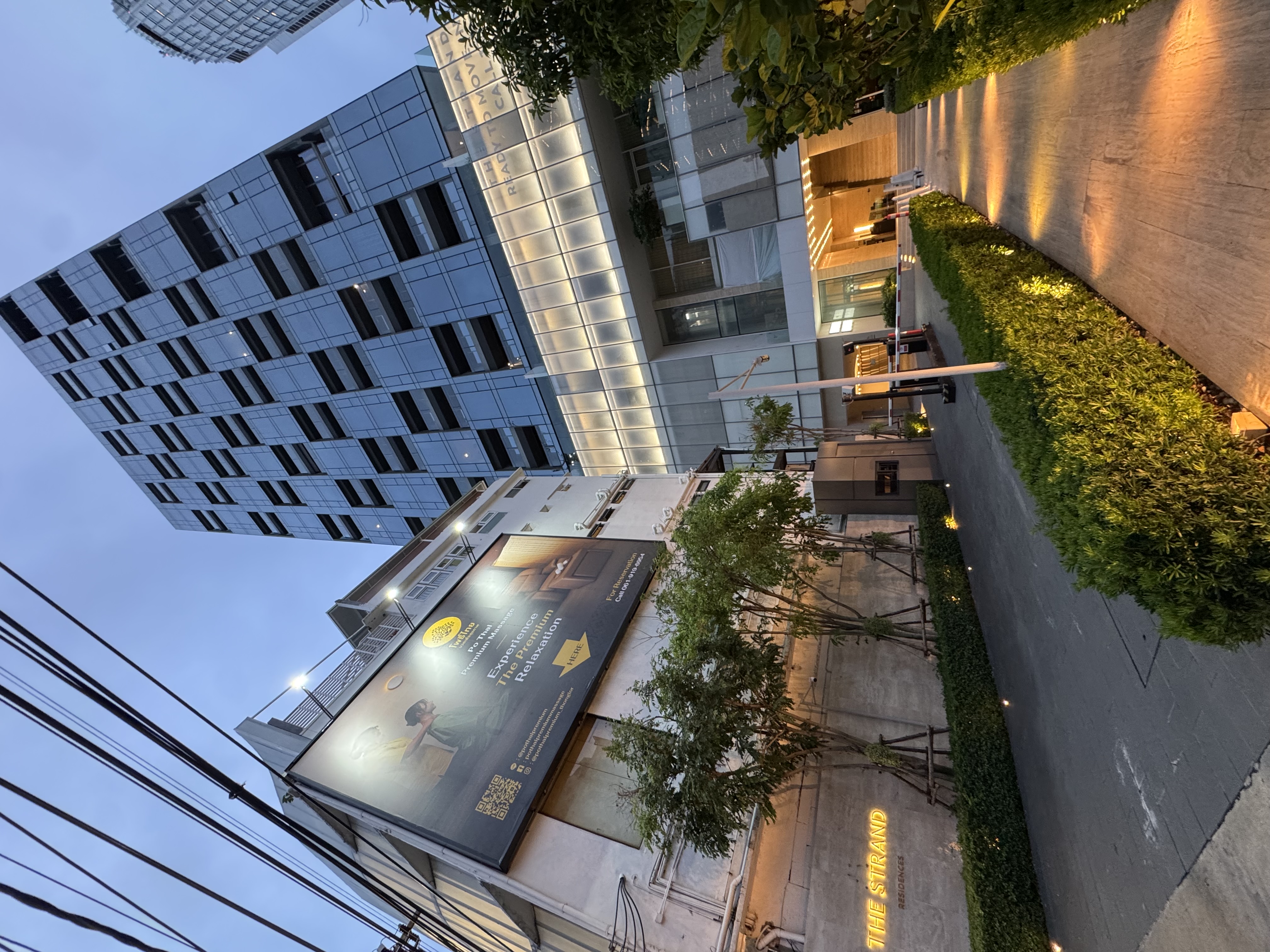Modern Architecture Meets Traditional Healing
Failed to generate audio
The sheer scale and modern design of "The Strand Residences" building set against the older, lower-rise structure next to it highlight a common architectural trend in rapidly developing urban centers: the continuous evolution of cityscapes, where the new rises alongside, and sometimes in stark contrast to, the old. This juxtaposition isn't just aesthetic; it tells a story of growth and modernization, often seen in cities where space is at a premium and contemporary design is embraced.
Next to this sleek, glassy tower, you'll see a prominent billboard for "Po Thai Premium Massage." The name "Po Thai" is a blend of "Po," which in Thai tradition often refers to the Bodhi tree, a symbol of enlightenment and peace, and "Thai," indicating its origin. The full text, "โพธิ์ไทย นวดเพื่อสุขภาพ," translates directly to "Po Thai Massage for Health," emphasizing a focus on well-being and traditional techniques. The phrase "Experience The Premium Relaxation" further suggests a high-quality, tranquil experience, likely a step above a standard massage parlor. This type of establishment is very popular in places like Thailand, where massage is not just a luxury but often considered a part of a holistic approach to health, rooted in ancient healing practices. The phone number and social media handles indicate it's a modern business that's easy to connect with, catering to both locals and international visitors seeking authentic Thai relaxation. The inclusion of English on the sign suggests they are welcoming to a diverse clientele, including those from Western countries.
The Strand Residences and Po Thai Premium Massage in Bangkok
Failed to generate audio
You've captured a view of a modern urban environment, likely in Bangkok, Thailand. The prominent skyscraper in the background and the elegant pathway are part of "The Strand Residences," a luxury condominium development in the Thonglor area. Thonglor is known for its upscale residences, trendy cafes, restaurants, and nightlife, often catering to expatriates and a more affluent local crowd.
The large billboard advertises "Po Thai Premium Massage," offering "Premium Relaxation." Thai massage is a traditional healing system combining acupressure, Indian Ayurvedic principles, and assisted yoga postures. While many Thai massage shops cater to tourists with varying degrees of legitimate services, a "premium" establishment like Po Thai, especially in an upscale area, typically emphasizes therapeutic and relaxing experiences. However, in some contexts, the term "massage" in Thailand can be a euphemism for sex work, though establishments openly advertising "premium" relaxation or offering a specific style like "Po Thai" are more likely to be legitimate, high-end spas. The telephone number and social media handles on the billboard suggest a professional and established business.
The Strand Residences & Po Thai Premium Massage
Failed to generate audio
This appears to be a mixed-use development called "The Strand Residences" in Thailand, likely Bangkok (indicated by "Thonglor" on the massage ad). It combines luxury residences with commercial spaces like the "Po Thai Premium Massage" spa. "นวดเพื่อสุขภาพ" (Nuat Puea Suk Phaap) translates to "Massage for Health" in Thai, emphasizing therapeutic benefits.
